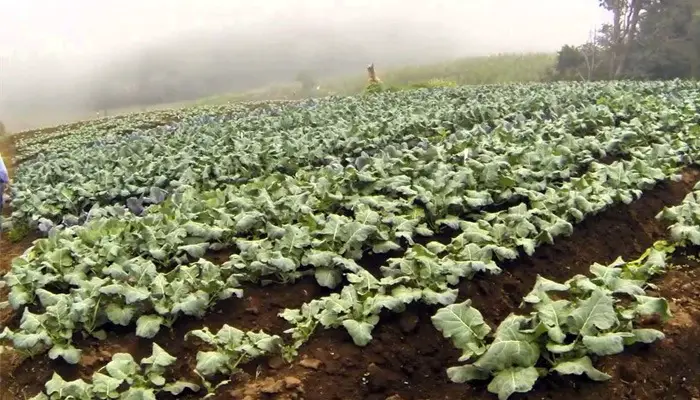
“AGROINNOVACION 4.0”, is an initiative of the Costa Rican government for the improvement in productivity and sustainability of the agricultural sector, through precision tools and adding more value to agriculture production that will be applied in a phased manner throughout the country.
In total, it is estimated that the initiative will directly impact 5,000 families the first year, 3,000 families the second and another 3,000 families the third, for a total of 11,000 producer families.
The program is led by the Ministry of Agriculture and Livestock and the Rural Development Institute, with the support of INTA, the academic sector (UCR, UNA and TEC) and other cooperators, such as the Development Banking System and Fundecooperación. The investment is up to ₡ 4,267 million.

Agriculture Minister Alvarado Rivera explained that the program has already been tested in Tierra Blanca of Cartago, where small producers use precision technology, drip irrigation systems, sensors to measure gravimetric humidity, temperature and electrical conductivity, tensiometers and suction lysimeters of humidity, volumetric sensors to quantify water consumption, dead mulches or soil mulches and efficient management of planting density.
“This entire package is focused on saving water, fertilizers, pesticides and seeds, among other inputs, and is based on data, explains Jairo González, MAG extensionist in the Central Western Region.” With this process, farmers have obtained results of up to 128% increase in productivity, 52% reduction in production costs, 84% reduction in agrochemicals and 93% reduction in water resources, in onion cultivation.
In detail, the use of this precision technology will be replicable in all regions of the country in a phased manner:
Phase 1: It will be scaled to the Chorotega Region and the Brunca Region with fruit and vegetable products.
Phase 2: It will be scaled to the other regions of the country in fruit and vegetable products, grains and roots and tubers.
Phase 3: It is expected to expand its application with new modules and non-traditional crops in all regions.
Sustainable production and value addition
Transformation of production processes and industrialization of products as a means to generate new alternatives by incorporating technological packages and laboratory analysis linked to production modules.
Development of geotechnological tools
Development of technological models that apply precision agriculture techniques for follow-up, monitoring, data analysis, early alerts and systems for commercial linkage of production modules.
Adaptation to climate change
 Transformation of production modules through a model based on precision agriculture that incorporates irrigation, nutrition, protection and yield systems, which in turn has an impact on increasing productive capacity and resilience to climate change.
Transformation of production modules through a model based on precision agriculture that incorporates irrigation, nutrition, protection and yield systems, which in turn has an impact on increasing productive capacity and resilience to climate change.
As a second component of this project, there is the Certification in Good Agricultural Practices and Traceability that aims to introduce added value, better commercialization and opportunities in external markets, as well as strengthen controls in terms of safety, quality, pests and diseases, to minimize the risks of contamination in the vegetables that are destined for the national consumer.
Finally, work is being done on Geo-Technological Development, which includes the central repository of geo-data for agricultural information that would provide data infrastructures for the mobile application for the farmer, technicians and consumers.
“We are pushing Costa Rican agriculture towards a new technological development, because we are convinced that emerging technologies have the potential to revolutionize the way in which food is produced. These technologies could further transform the lives of small and medium farmers,” stated Minister Alvarado Rivera.
We believe in the New Earth Shift towards a sustainable lifestyle that creates our own resources and is moving towards self-governance between the people. This will enable people to have more time for themselves and their practice as well as taking care of the planet and learn the traditional ways that once lead the land.
http://ResonanceCR.com/
